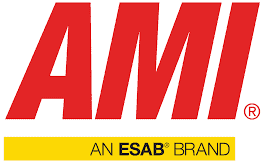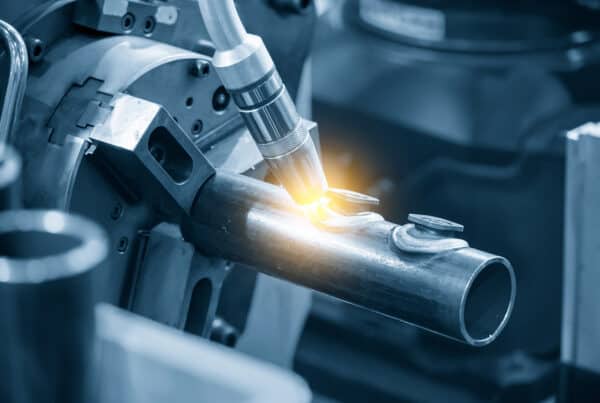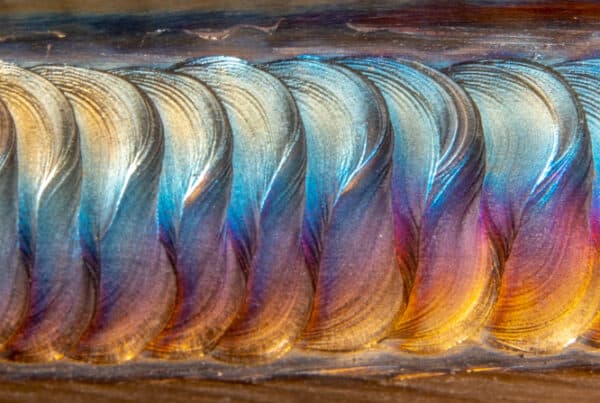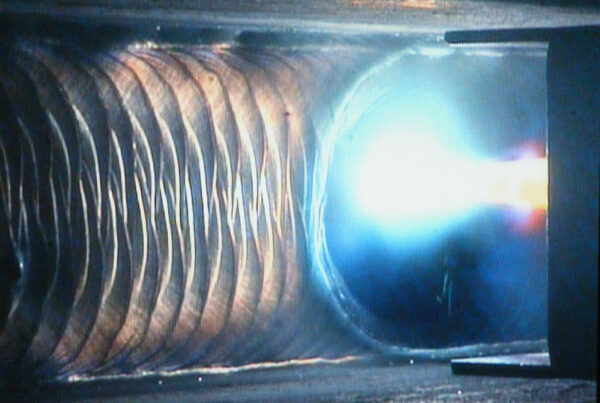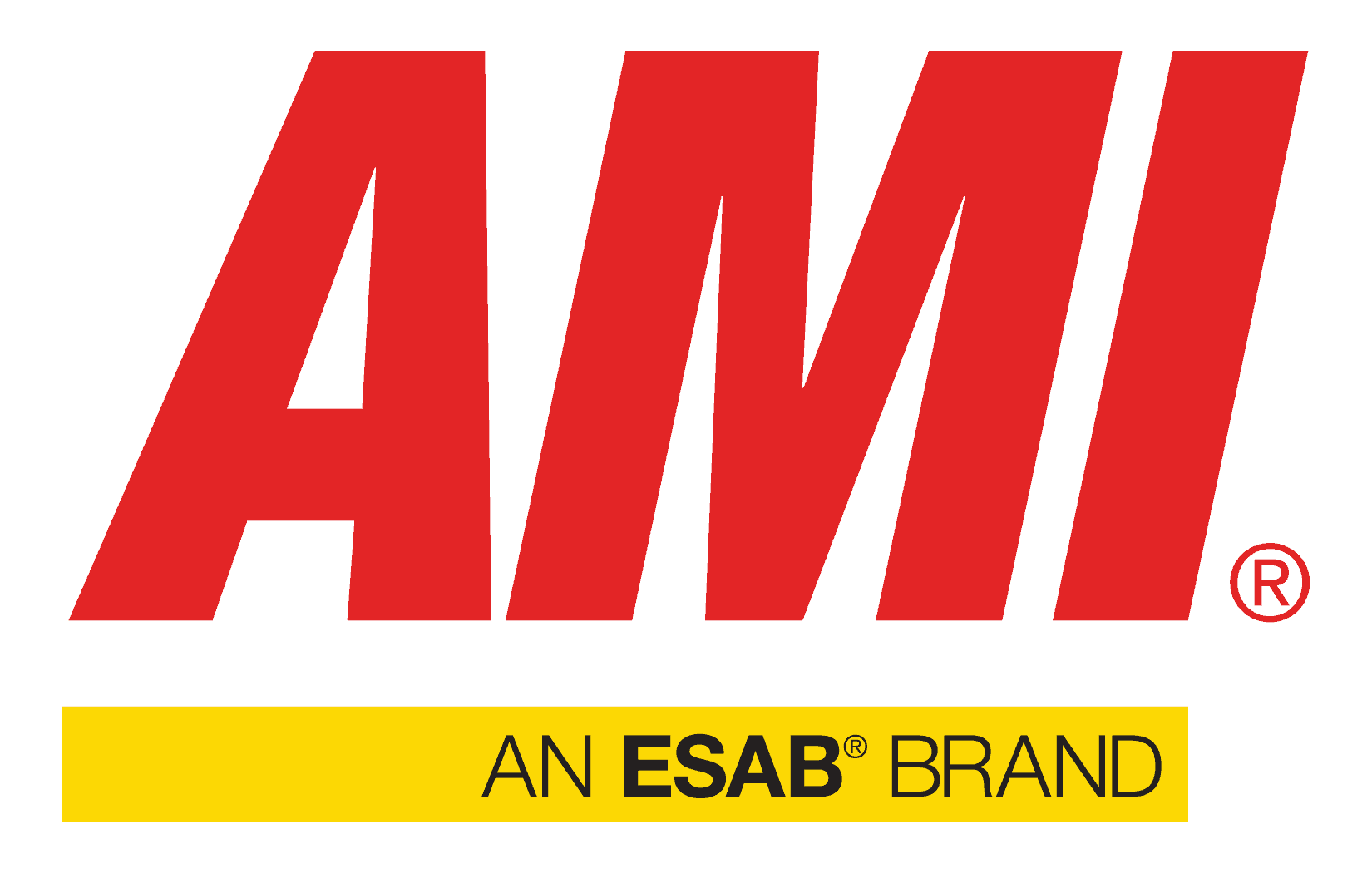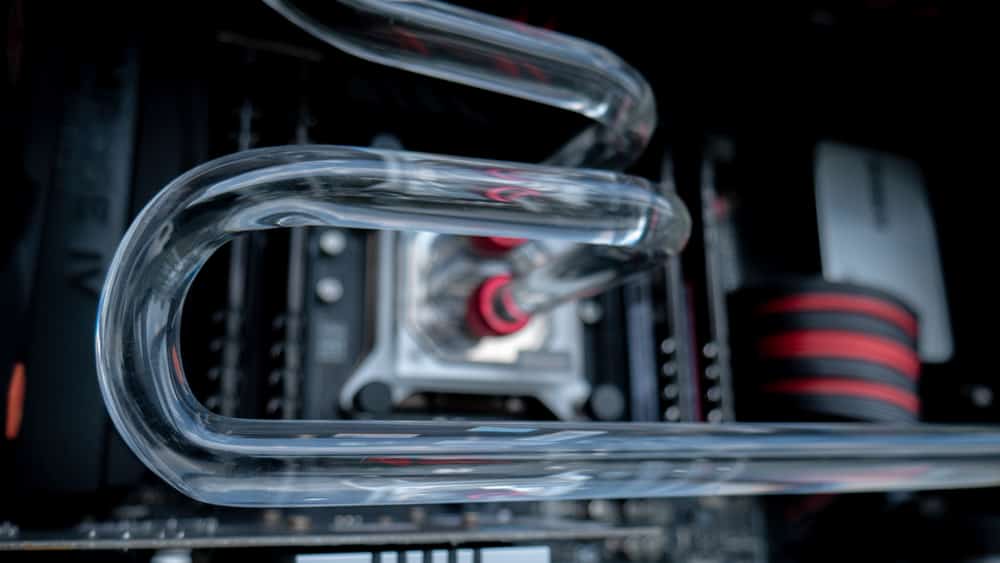
Any application dealing with heat needs a temperature control mechanism to ensure proper heat distribution. Geothermal plants commonly assist heat pumps with heating and cooling mechanisms; at server farms, this assistance can be essential to prevent overheating. Spacecraft may also use thermal loop cooling mechanisms to keep components from being damaged by heat.
Given the critical nature of thermal loop cooling, component material selection and fabrication should counter the primary causes of defects—in this case, corrosion and contamination. Orbital welding can help with the custom fabrication of a high-quality thermal loop cooling system.
What Is Thermal Loop Cooling?
The thermal loop is a heat transfer unit designed to fulfill a system’s heating or cooling requirements. As the name suggests, specially designed cooling loops assist with cool-down for systems that generate high-heat loads. For excessive heat generation, liquid cooling loops are effective because they conduct heat better than air cooling loops.
The thermal cooling loop generally consists of a base plate, evaporator, pump, and heat exchanger connected through a piping system. The wick within the evaporator facilitates the contact of coolant with the base plate that is in contact with the heated system. The coolant that is heated/evaporated travels the loop system and is pumped to the heat exchanger. Here, the heat is transferred to the atmosphere, reducing the coolant’s temperature. This cooled coolant returns to the evaporator and base plate and continues the cycle. By transferring the heat from the board to the atmosphere, the thermal cooling loop keeps the system cool.
The immersion loop represents a new thermal loop technology where the heated components, such as the server, are completely submerged in the container of coolants. In the geothermal industry, this can be compared to ground loop cooling, where the pipe system is buried in the ground, which acts as the heat sink. The cooling mechanism is accomplished in two ways:
- Single-phase thermal cooling: The heat from the component is transferred to the coolant and carried to the heat exchanger, where the heat is transferred to the cooler liquid.
- Double-phase thermal cooling: The coolant with a low-boiling point heats up and boils due to the heat from the server. The vapor evaporates to take heat from the coolant. As it loses heat, the vapor condenses and turns back into liquid.
Challenges of Fabricating Thermal Cooling Loops
One of the largest problems with thermal cooling loops is the issue of material compatibility with coolant chemical properties. Fluids like deionized water may offer low thermal conductivity but are also corrosive to materials such as carbon steel. Due to corrosive erosion, the potential for fluid leakage increases while the eroded material can get deposited to cause issues like blockages. Contamination of the fluid from external impurities or incompatible corrosion inhibitors can also cause the premature failure of tubes and pipes.
During fabrication, the optimal component, coolant, and welding process selection is critical.
An ideal weld should be:
- Resistant to high temperature and internal fluid pressure
- Made of corrosion-resistant material
- Clean to prevent contamination
- Defect-free to prevent leakage.
Thermal Loop Cooling Fabrication With Orbital Welding
Thermal loop cooling fabrication with orbital welding will guarantee you the following benefits:
- Welds performed with precision, control, and consistency
- Automated gas flow control to allow the formation of clean welds
- Defect-free welds that reduce the potential for leakage
- An automated process, facilitating welding flexibility from any position and in any narrow gaps.
As the benefits described above suggest, orbital welding can help you overcome challenges and meet standards when fabricating custom thermal loop cooling systems across industries.
Arc Machines, Inc. can help you address the challenges of welding thermal loop cooling systems with a wide range of products. For inquiries regarding advanced orbital welding solutions, contact sales@arcmachines.com. For service inquiries, contact service@arcmachines.com. Contact us to arrange a meeting. Arc Machines welcomes the opportunity to discuss your specific needs.
